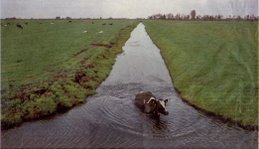
Yesterday, I published on my sister blog A Legal Alien in New York the following opinion on American arrogance and European hypocrisy around the treatment of “unlawful enemy combatants”. You are invited to read it there.
Here is, how it begins:
A Week of Torture
Let me say it outright and at the beginning of this post: In my opinion, coercive techniques are allowed, if not necessary, when dealing with active criminal terrorists. People who are engaged in crimes against civilian populations, who are in the business of concretely preparing and executing them, should be forced to tell all information they dispose of, in order to save lives of innocent people. This exception to a general worldwide treaty on banning torture and inhuman treatment of detainees, should be accepted, put on paper, and surrounded by all possible guarantees, so that it will not be misused and abused. In Europe, this is not a popular point of view. In Europe, we, civilians, are used to dress barriers, legal barriers, against all possible abuse by authorities. That is because we do not trust them. Historically, there is plenty of good reasons for that mistrust. For us, legal limitations on official intrusion into the corporal and psychic integrity, even of offenders, are a landmark of civilisation. […]
And so on….
This is, how it ends:
But, in the end, nothing has changed, after this torturing week. On December 11, The Washington Post commented sadly:
Europeans and Americans who interpreted Ms. Rice's statements last week as an assurance that the CIA will no longer use waterboarding, prolonged shackling or induced hypothermia in its secret prisons were misled. Administration officials tell us there has been no decision to abandon those practices. Similarly, those who have hoped that the McCain amendment would end CIA abuses, as we have, must lower their expectations. The creation of a legal standard, while essential, probably will have to be followed by an effort to compel the administration to respect it, through further legislation or court action.
In short: American services should shut up with their contra productive and offending practices, and the Europeans should abandon their illusion that they could stay out of it, and act.














